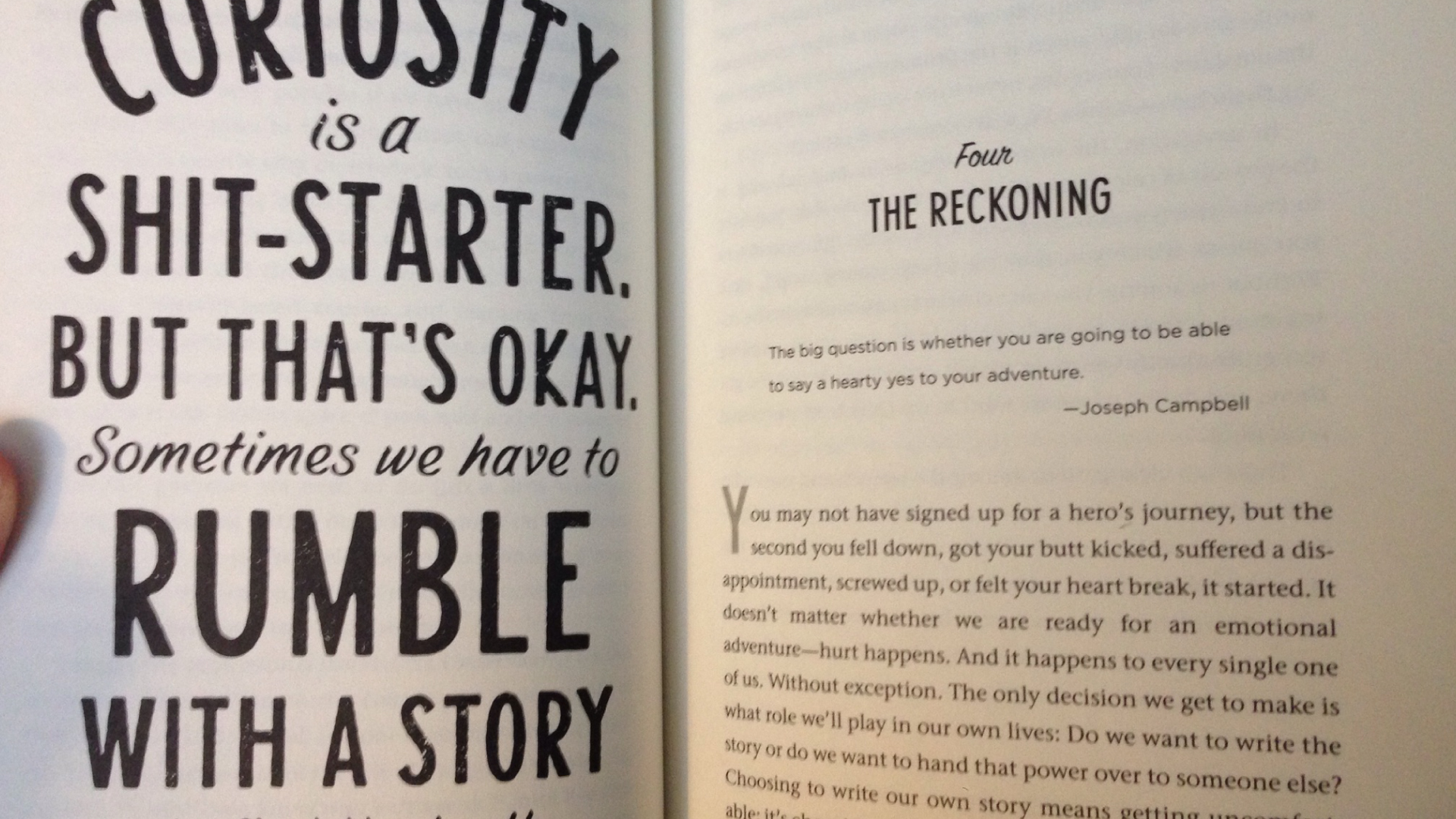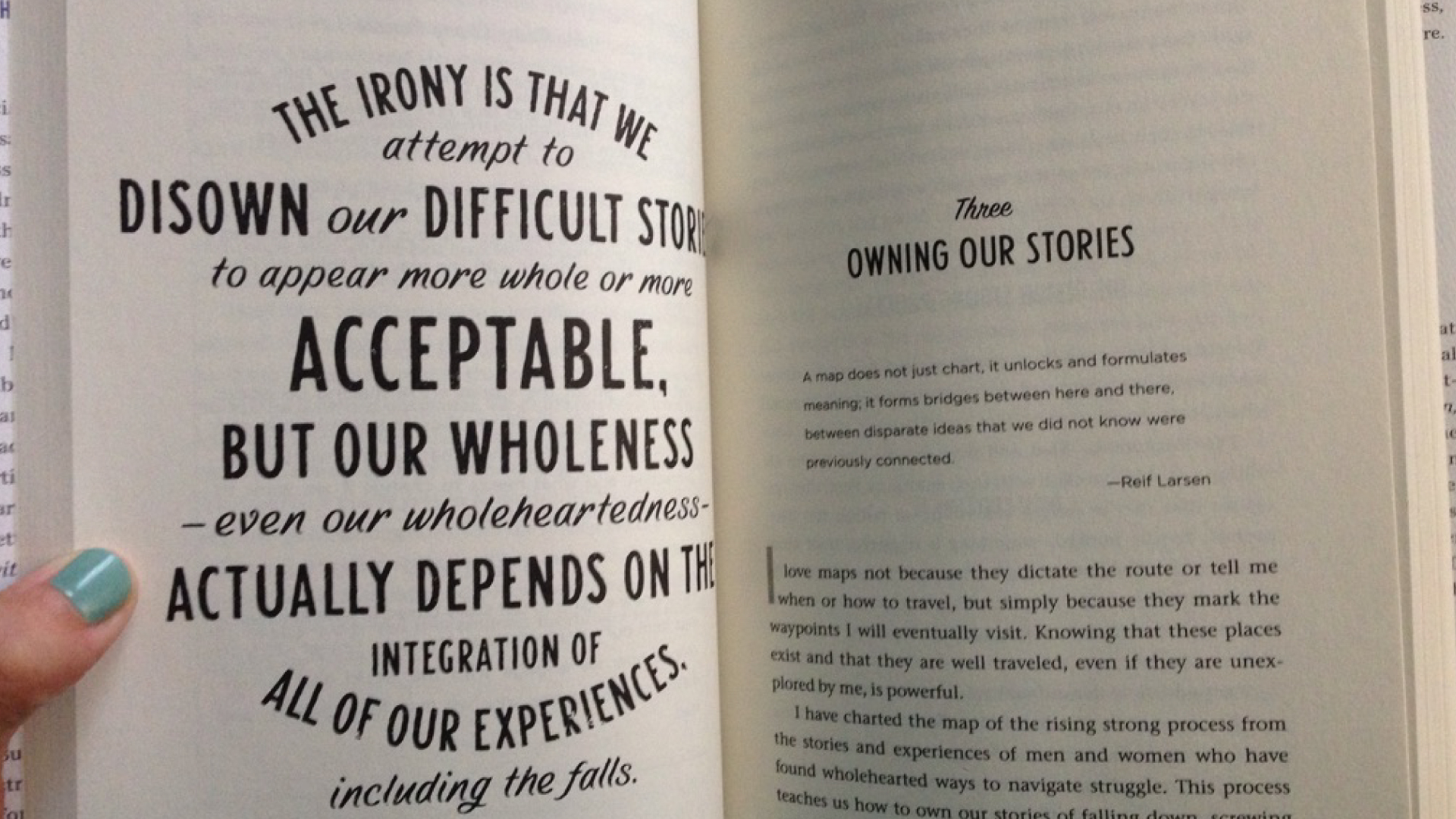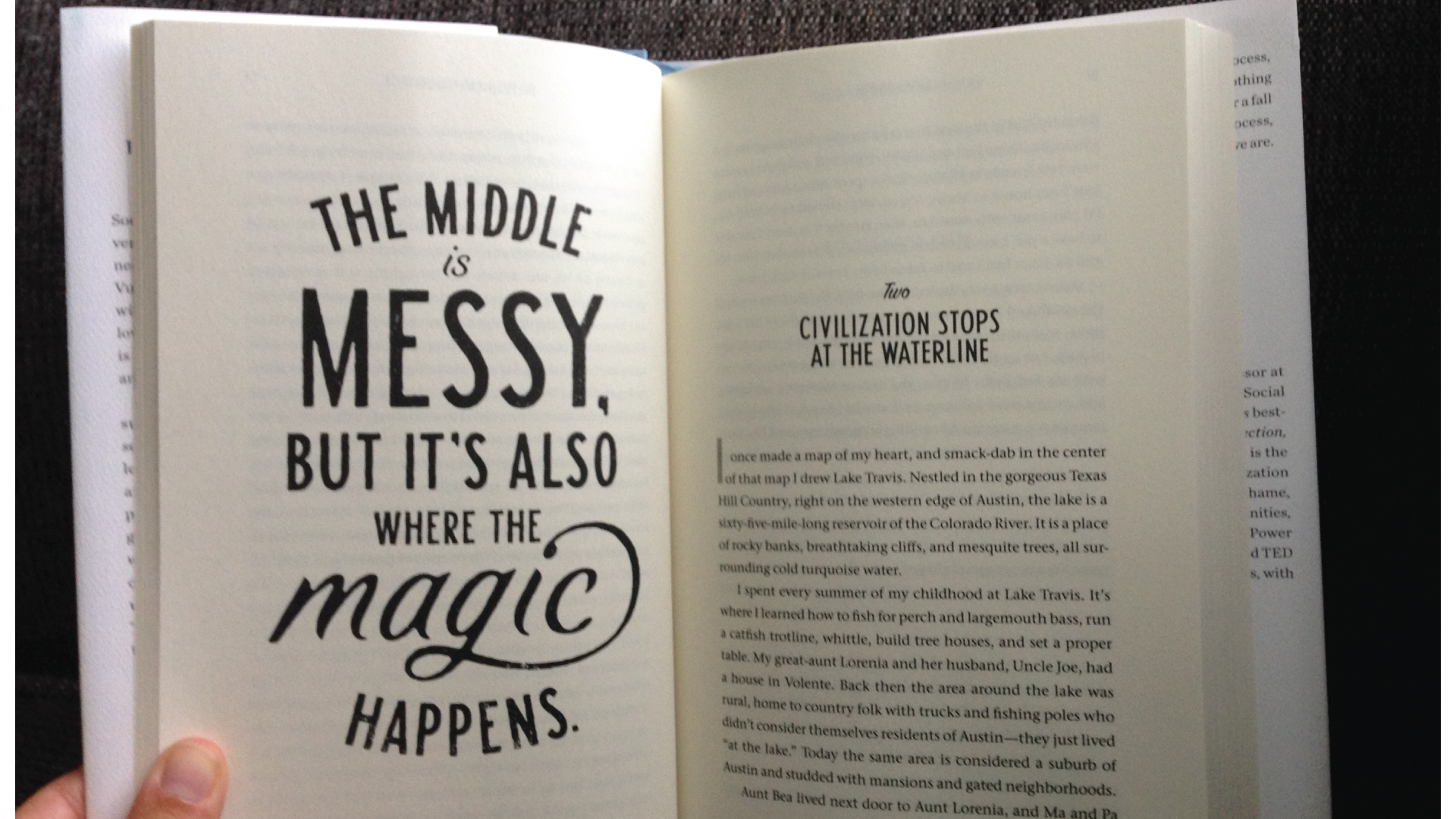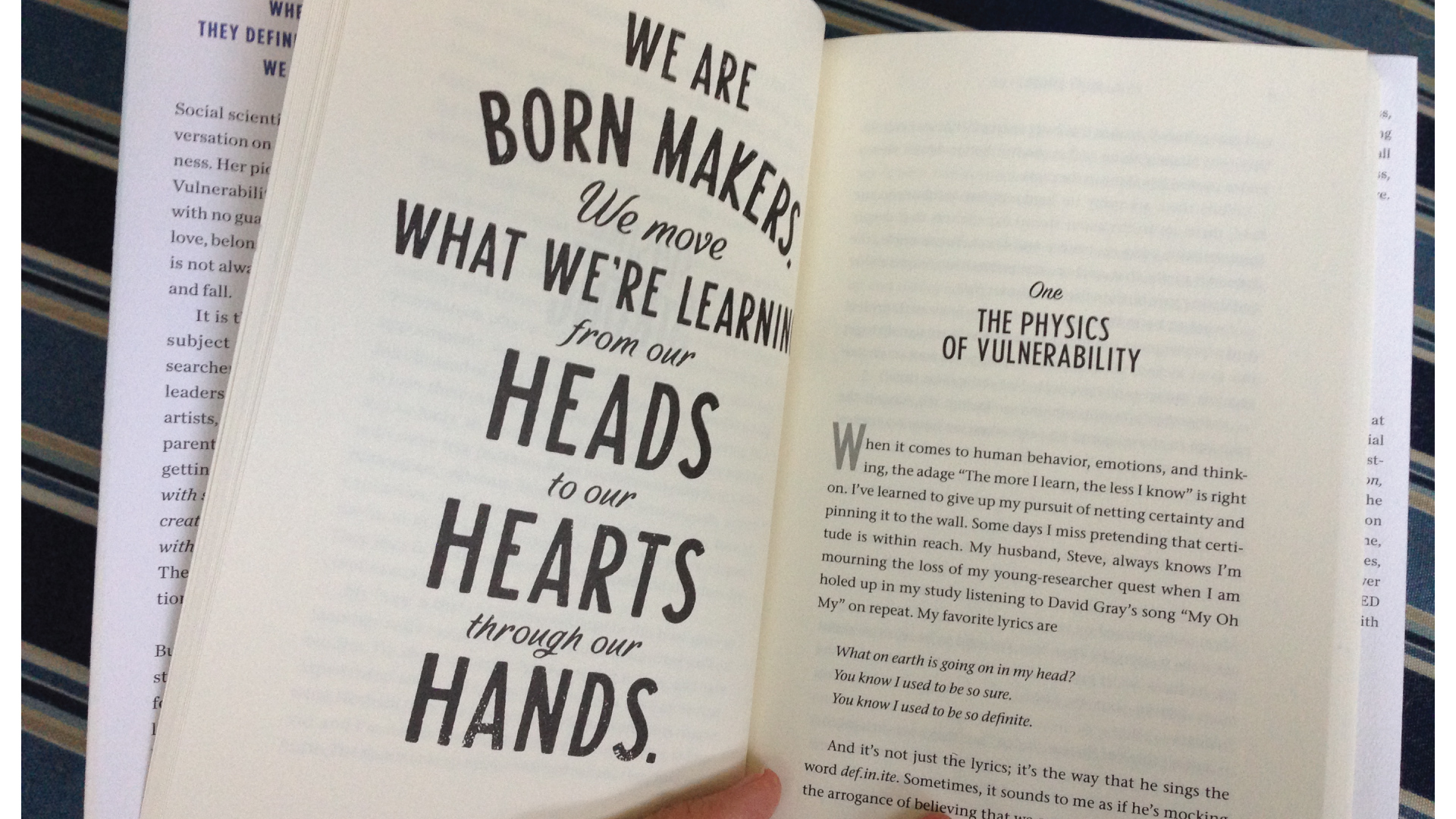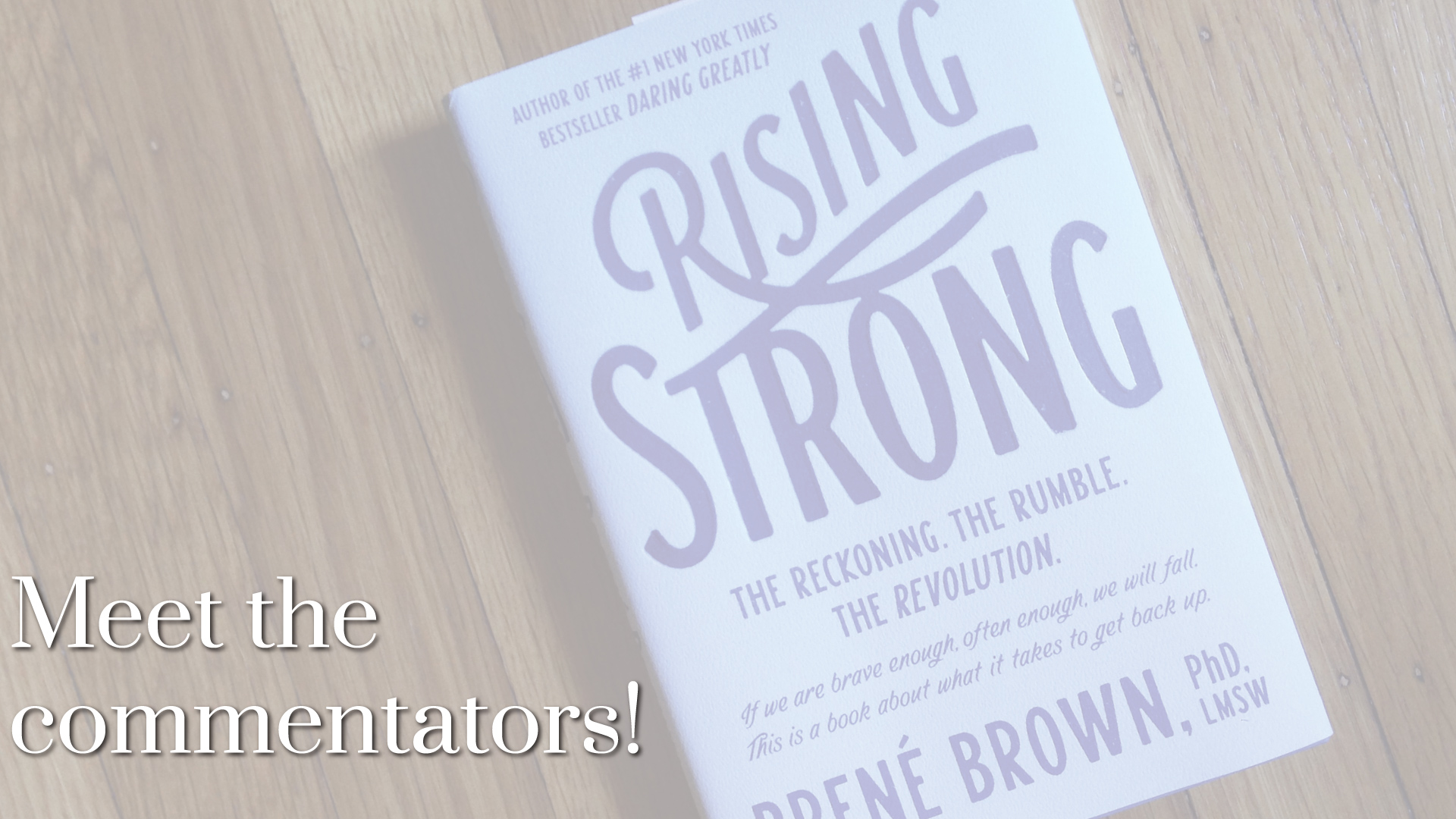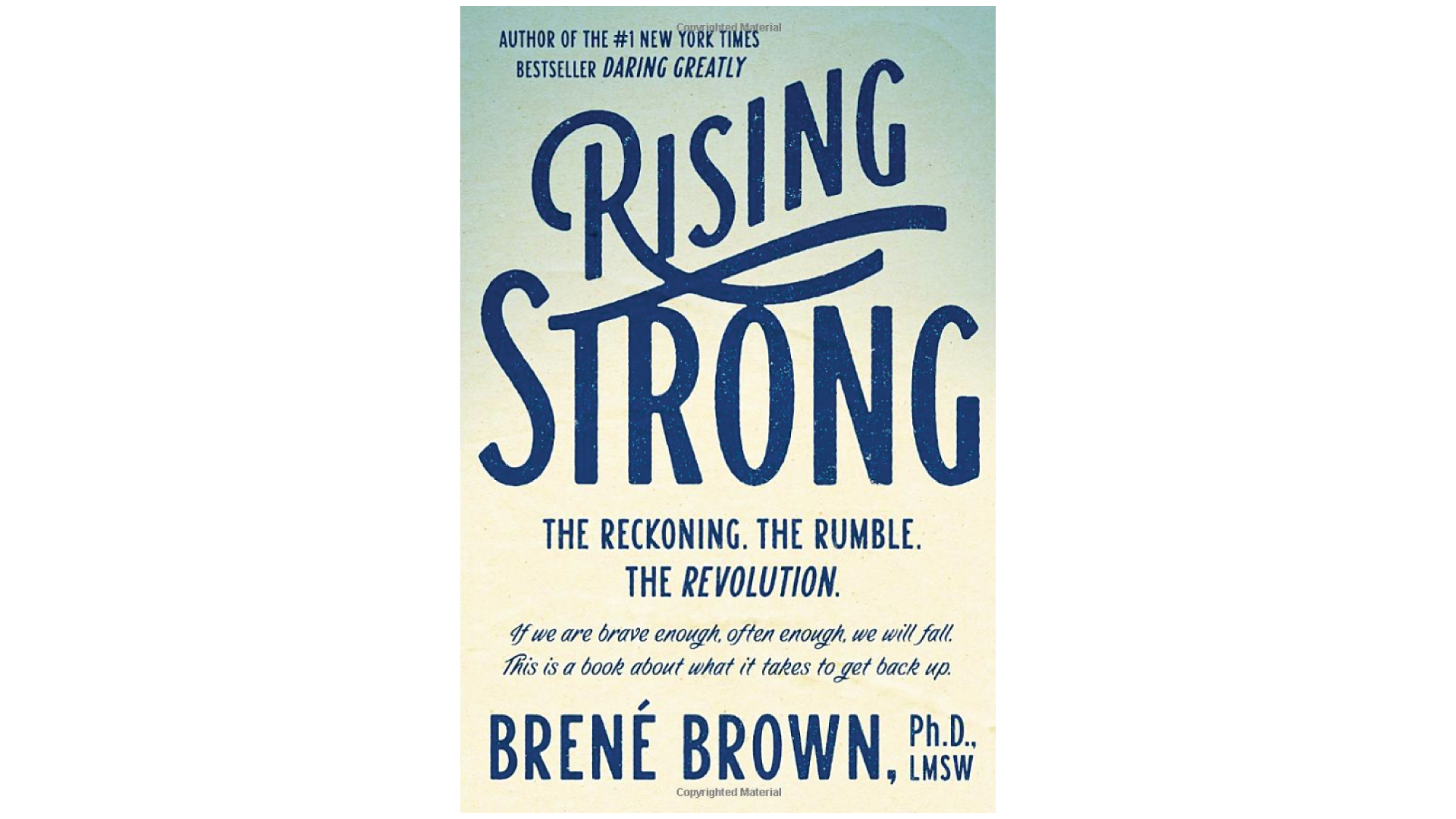Welcome to the comments and discussion of Chapter 4: The Reckoning of the book, Rising Strong by Brené Brown! Catch up on Chapter 1: The Physics of Vulnerability, Chapter 2: Civilization Stops at the Waterline, and Chapter 3: Owning Our Stories.
Let’s get started! Chapter 4!
Wow. Reading this chapter, was hard for me. The entire time, I had a story in my mind of a time in my past career when I’d messed up a little. A time when I’d acted in a way that I didn’t like thinking about. Shame washed over me consistently during my reading of Chapter 4.
Before running Lacuna Loft, I was an Aerospace Engineer. I went to a top-5 ranked university, worked with well-known defense companies, finished my Master’s Degree, and started a Ph.D. I researched high-temperature metal fatigue with the Air Force and then with NASA. At one point in my graduate studies, I presented at a conference with some of my NASA colleagues and a lab-mate from school. Near the end of my presentation, I was asked a question that I knew, I knew the answer to…but I just couldn’t find the correct response in my brain. I quickly searched my brain, gave up, grew defensive, and said something totally useless. The entire room full of professionals saw. About 15 minutes later, on the escalator in the conference hotel, someone passing in the other direction gave me the proper answer. By then, I already remembered what the correct response had been but thanked the man none-the-less. I still think of this experience, more than 4 years and an entirely new career later. It makes me think about my past life with nostalgia, anger, and sadness. It makes me feel like an even bigger failure than thinking about my past career can already do at times. Just reading Chapter 4 brought back all of these feelings.
This chapter was full of important nuggets of information, but the one that really helped assuage my feelings of shame and scarcity (feeling like I am not enough), was on the last page. Brené Brown writes, “The most difficult part of our stories is often what we bring to them – what we make up about who we are and how we are perceived by others. Yes, maybe we lost our job or screwed up a project, but what makes that story so painful is what we tell ourselves about our own self-worth and value.” Nail hit directly on the head. I eventually left graduate school because of cancer and the effect it was having on the pace of my productivity.
Those professionals saw a graduate student who almost had the research question figured out, but who needed a little more time figuring out the nuts and bolts. Instead, I saw myself as someone who should have known the right answer in the right moment and who, therefore, was useless and unworthy. My defenses sprung up to cover my discomfort with not knowing. Ironically, in research, saying that you’re not sure and talking it through, even in front of a bunch of people, is totally understood. I added negativity and hurt to the story that was perceived by me, and me alone.
Reading this book and really thinking about its lessons is like going to therapy each week. Therapy was where I learned to be curious about emotions. As a child, while fighting with my little brother, I was taught that the conflict was my fault, as I was the older sibling, and that I should stop. Just, stop. Not, figure out why I was angry and then sort through a better response of my emotions for both me and my brother. Nope. Just, stop. Stop reacting, stop being angry, stop, stop, stop. It took several years of therapy to realize that children become angry and fighting with my little brother didn’t make me a bad sibling, or a bad person. Once again, what was painful about that story was what I told myself about my own self-worth and value.
Who else is loving this book? Who else is finding certain chapters difficult to read?
—
Thanks for joining us for our Chapter 4: The Reckoning of Rising Strong! Join in next Monday for Chapter 5: The Rumble and in the meantime, learn more about the book club commentators!
If you’re just joining us, here are some logistics:
We will talk about a chapter each Monday until the book is done. Then, we’ll use one more Monday to talk about general feelings from the book and anything else you’d like to discuss. Join in, in the comments every week! At the end, we’ll have a book club discussion via video chat! Also, there will probably be spoilers. Read along with us!
How are you enjoying our young adult cancer book club?



